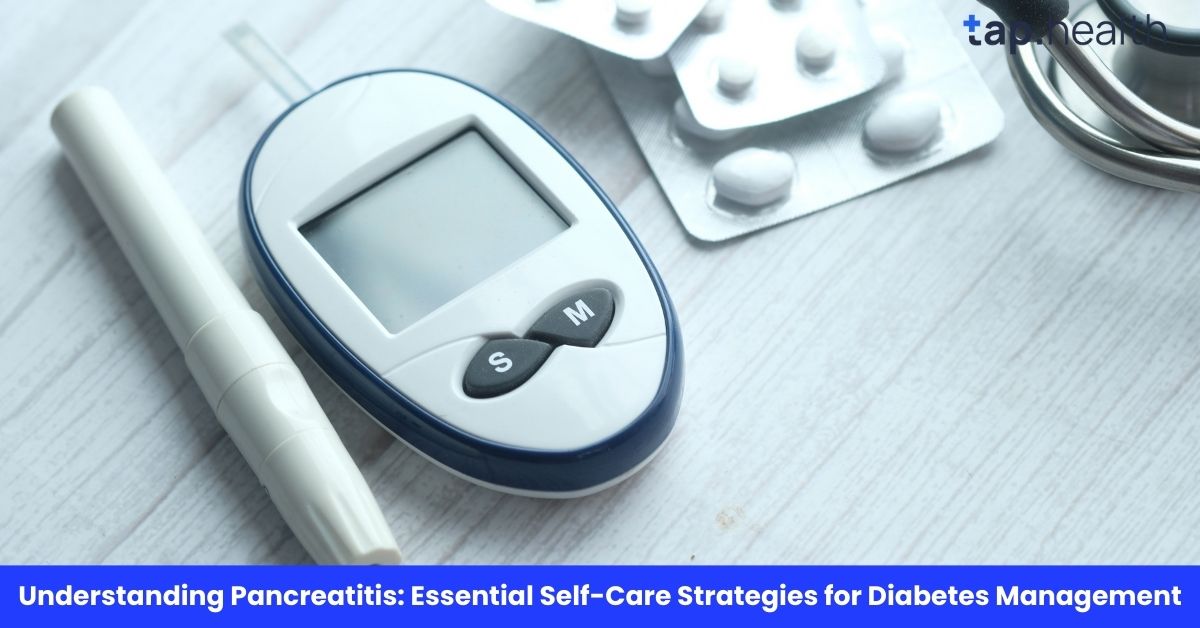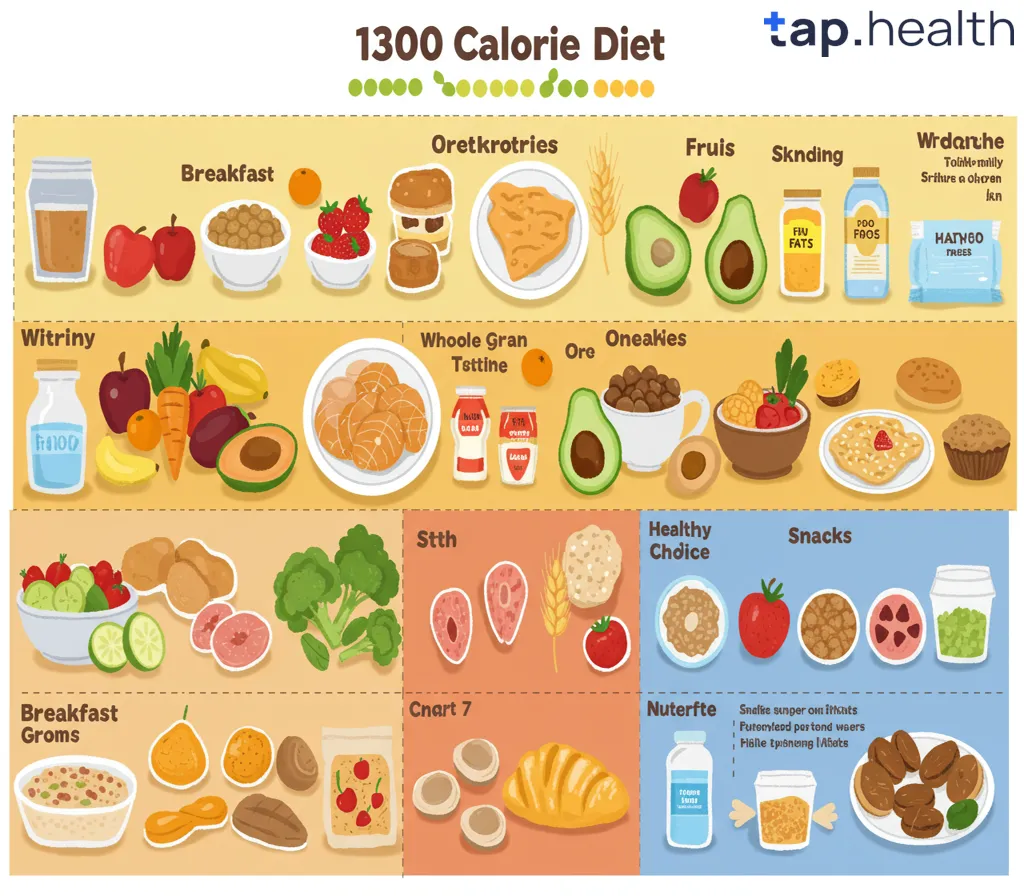Table of Contents
- Understanding Pancreatitis and Diabetes: A Comprehensive Guide
- Pancreatitis Self-Care: Essential Tips for Diabetes Management
- Managing Diabetes with Pancreatitis: Nutritional Strategies and Lifestyle Changes
- Living Well with Pancreatitis and Diabetes: Expert Advice and Support
- Is Pancreatitis Affecting Your Diabetes? Prioritize These Self-Care Steps
- Frequently Asked Questions
- References
Living with diabetes often means navigating a complex landscape of health challenges, and for some, that includes the added worry of pancreatitis. This inflammatory condition of the pancreas can significantly impact blood sugar control, making effective self-management even more crucial. Understanding pancreatitis is therefore key to improving your overall well-being. This blog post focuses on essential self-care strategies specifically tailored for individuals with diabetes who are managing or recovering from pancreatitis. We’ll explore practical tips to help you maintain stable blood sugar levels, manage pain, and ultimately improve your quality of life. Let’s dive in!
Understanding Pancreatitis and Diabetes: A Comprehensive Guide
Diabetes significantly increases your risk of developing pancreatitis, a serious inflammation of the pancreas. This is particularly relevant in Indian and tropical countries where diabetes prevalence is high. The pancreas plays a crucial role in both digestion and blood sugar regulation, making its inflammation a critical concern for people with diabetes. Understanding the connection between these two conditions is vital for effective management and improved health outcomes.
Recognizing the Symptoms
Pancreatitis symptoms can vary, but common signs include severe abdominal pain, often radiating to the back, nausea, vomiting, and fever. Early diagnosis is crucial, as untreated pancreatitis can lead to serious complications. If you experience these symptoms, especially if you have diabetes, seek immediate medical attention. Early intervention is key to minimizing long-term damage. For a more detailed look at potential symptoms, see our guide on 10 Pancreatitis Symptoms: What You Need to Know.
Diabetes Management and Pancreatitis Prevention
Strict diabetes management is paramount in reducing the risk of pancreatitis. Maintaining healthy blood sugar levels through diet, exercise, and medication (if prescribed) is essential. This includes consistently monitoring blood glucose levels and following your doctor’s recommendations carefully. A balanced diet low in saturated fats and high in fruits and vegetables can also help support pancreatic health. Furthermore, maintaining a healthy weight is crucial.
Regional Considerations in India and Tropical Countries
In many Indian and tropical countries, access to timely and quality healthcare can be a challenge. Therefore, proactive self-care is particularly important. Educating yourself about the symptoms of pancreatitis and the importance of regular check-ups is crucial. Remember that nearly 30% of people with diabetes develop diabetic nephropathy (kidney disease), highlighting the need for comprehensive healthcare management. By being proactive and informed, you can significantly reduce your risk and improve your overall health. Consult your doctor for personalized advice and regular check-ups to ensure optimal management of both your diabetes and your pancreatic health. While this guide focuses on pancreatitis, it’s important to be aware of other pancreatic conditions. For information on Pancreatic Cancer Symptoms Guide for Patients, please see our related resource.
Pancreatitis Self-Care: Essential Tips for Diabetes Management
Managing diabetes in tropical climates like those prevalent in India presents unique challenges. The added burden of pancreatitis, a condition affecting the pancreas, significantly complicates diabetes management. This is particularly crucial considering that over 60% of people with diabetes in India also have hypertension, a statistic highlighting the interconnectedness of these health issues. Understanding how pancreatitis impacts diabetes control is therefore paramount for improved health outcomes in these regions.
Dietary Adjustments for Pancreatitis and Diabetes
Dietary modifications are crucial. Focus on a low-fat, high-fiber diet rich in fruits, vegetables, and lean protein. Avoid trigger foods that can exacerbate pancreatitis symptoms, such as fatty meats, fried foods, and excessive alcohol. This dietary approach will also benefit your diabetes management by stabilizing blood sugar levels. Remember, portion control is key to managing both conditions effectively.
Lifestyle Modifications for Improved Health
Maintaining a healthy weight is vital. Obesity increases the risk of both pancreatitis and diabetes complications. Regular, moderate exercise, such as brisk walking or yoga, is beneficial for managing blood sugar levels and overall well-being. Prioritize stress reduction techniques like meditation or deep breathing exercises. Stress can negatively impact both diabetes and pancreatitis. For a deeper understanding of the severity of pancreatitis, read more about Can You Die from Pancreatitis?
Regular Monitoring and Medical Consultations
Regular monitoring of blood sugar levels is essential for effective diabetes management, especially with the added complexity of pancreatitis. Attend all scheduled appointments with your doctor and other healthcare professionals. Open communication with your medical team is critical for personalized care and proactive management of both conditions. Early detection and intervention can significantly improve your quality of life. Remember to always consult a doctor before making significant changes to your diet or exercise routine. If you’re experiencing symptoms, learning about Acute Pancreatitis: Symptoms, Causes & Treatment can be helpful.
Managing Diabetes with Pancreatitis: Nutritional Strategies and Lifestyle Changes
Pancreatitis, an inflammation of the pancreas, significantly impacts diabetes management as the pancreas plays a crucial role in insulin production. In India and other tropical countries, where diabetes prevalence is high, understanding how to manage both conditions is vital. Effective management requires a holistic approach encompassing dietary adjustments and lifestyle modifications.
Nutritional Strategies for Diabetes and Pancreatitis
Dietary modifications are paramount. For individuals with diabetes and pancreatitis, controlling carbohydrate intake is key. While the exact amount varies depending on individual needs and blood sugar levels, a general guideline suggests aiming for approximately 45–60 grams of carbs per meal. This needs to be carefully monitored and adjusted based on your doctor’s recommendations and regular blood glucose testing. Focus on complex carbohydrates like brown rice, oats, and whole wheat over refined carbs. Prioritize lean protein sources such as fish, lentils (daal), and chicken, essential for tissue repair and blood sugar regulation. Incorporate plenty of fiber-rich vegetables, common in Indian cuisine like spinach (palak) and okra (bhindi), to aid digestion and blood sugar control. Limit saturated and unhealthy fats found in fried foods and processed snacks, which can worsen both pancreatitis and diabetes. Managing your weight is also crucial, as discussed in our article on Managing Diabetes as You Age: Challenges and Solutions.
Lifestyle Changes for Improved Management
Beyond diet, lifestyle changes play a crucial role. Regular exercise, even moderate activity like brisk walking or yoga, helps improve insulin sensitivity and manage weight. Stress management techniques, such as meditation or deep breathing exercises, are also essential as stress can exacerbate both conditions. Maintaining a healthy weight is crucial, reducing the strain on the pancreas and improving blood sugar control. In tropical climates, staying hydrated is critical, especially during warmer months. Remember, consistent monitoring of blood glucose levels and regular check-ups with your doctor are crucial for effective management. It’s also important to be mindful of emotional eating habits, as detailed in Addressing Emotional Eating in Diabetes: Strategies.
Seeking Expert Advice
Consult with a registered dietitian or diabetes specialist for a personalized dietary plan tailored to your specific needs and cultural preferences. This ensures you receive accurate guidance and support in managing your diabetes and pancreatitis effectively within the context of your lifestyle and regional dietary habits.
Living Well with Pancreatitis and Diabetes: Expert Advice and Support
Managing both pancreatitis and diabetes presents unique challenges, particularly in tropical climates like those found across India and other regions. Understanding the interplay between these conditions is crucial for effective self-care. A significant portion of the global diabetes population, 61% of whom are aged between 20-64 years, according to the International Diabetes Federation, face this dual diagnosis. This age group, often at the peak of their careers and family responsibilities, requires robust support and practical strategies for successful management.
Prioritizing Nutritional Management
Diet plays a pivotal role. In hot, humid climates, staying hydrated is paramount, and focusing on easily digestible, low-fat foods, rich in fruits and vegetables, is essential. This is especially important for those with pancreatitis, as fatty foods can exacerbate symptoms. Consulting a registered dietitian familiar with both conditions is highly recommended. They can tailor a meal plan to suit individual needs and the specific challenges of living in a tropical environment.
Managing Blood Sugar Levels Effectively
Maintaining stable blood glucose levels is crucial in preventing complications. Regular blood sugar monitoring, coupled with prescribed medication (if necessary) and lifestyle adjustments, is key. In India and other tropical countries, access to reliable healthcare services can vary, so proactive monitoring is even more critical. Regular check-ups with an endocrinologist are essential.
Lifestyle Modifications for Long-Term Wellness
Beyond diet and medication, managing stress, getting enough rest, and engaging in regular, moderate exercise are crucial. In many tropical regions, the heat can make physical activity challenging, but even short periods of gentle activity, such as walking, can significantly benefit both diabetes and pancreatitis management. Remember to listen to your body and avoid strenuous activity during peak heat.
Seeking support from local diabetes support groups is also invaluable, particularly in navigating the specific challenges of managing these conditions within your community. These groups can provide emotional support, share practical tips, and create a sense of community. Taking proactive steps toward self-management empowers you to live a full and healthy life, even with these conditions. For those concerned about the long-term outlook, understanding Life Expectancy After Acute Pancreatitis can be helpful in managing expectations and focusing on proactive care. Furthermore, exploring alternative treatments like Pancreatitis Treatment in Homeopathy might be something to discuss with your doctor.
Is Pancreatitis Affecting Your Diabetes? Prioritize These Self-Care Steps
Managing diabetes in India and tropical climates comes with unique challenges, especially when complicated by pancreatitis—an inflammation of the pancreas. Pancreatitis can significantly affect blood sugar control, making diabetes management even more critical. Understanding how to effectively manage both conditions is essential for overall health and well-being.
Remember, up to 80% of Type 2 diabetes cases can be delayed or prevented through lifestyle changes, which are also key in managing pancreatitis.
Dietary Adjustments: The Cornerstone of Management
A carefully planned diet is vital:
-
Focus on low-fat, high-fiber foods:
-
Fresh fruits and vegetables like leafy greens, bitter gourd, and drumstick (available locally in India and tropical regions)
-
-
Limit foods that exacerbate both conditions:
-
Processed foods
-
Sugary drinks
-
Red meat
-
Consult a registered dietitian for personalized advice that considers both your health needs and regional food availability.
Hydration and Medication Adherence: Essential Habits
-
Stay hydrated: In hot climates, adequate fluid intake is crucial to prevent dehydration, which can worsen symptoms.
-
Follow prescribed medications: Take medications for both diabetes and pancreatitis exactly as directed by your doctor for optimal management.
Lifestyle Modifications for Long-Term Well-Being
-
Regular moderate exercise: Brisk walking, yoga, or other doctor-approved activities help maintain blood sugar and support overall health.
-
Stress management: Techniques like meditation or deep breathing exercises improve emotional well-being and may support metabolic health.
-
Monitor symptoms: Track both blood sugar and pancreatitis symptoms to detect any changes early.
Prioritizing these self-care strategies can significantly improve quality of life while managing both conditions.
Seeking Regional Expertise
Access to healthcare professionals experienced in diabetes and pancreatitis is important in India and tropical regions. Key steps include:
-
Regular check-ups with your doctor
-
Active participation in your care plan
-
Seeking guidance on nursing implications and daily management strategies
Proactive management through these lifestyle adjustments can improve health outcomes and help you maintain well-being.
Frequently Asked Questions
Q1. What is the connection between diabetes and pancreatitis?
People with diabetes have a higher risk of developing pancreatitis because the pancreas plays a vital role in both digestion and blood sugar control. Damage from diabetes can affect the pancreas’s function, increasing the likelihood of pancreatitis.
Q2. How can I reduce my risk of pancreatitis if I have diabetes?
Managing your diabetes effectively is key. This includes following a prescribed diet, regular exercise, taking medications as directed, and consistently monitoring your blood sugar levels. Maintaining a healthy weight and eating a low-fat, high-fiber diet rich in fruits and vegetables are also important.
Q3. What are the key self-care strategies for managing both diabetes and pancreatitis?
Proactive self-care is crucial. This involves understanding the symptoms of both conditions, seeking immediate medical attention if symptoms arise, managing stress levels, staying well-hydrated, and regularly scheduling check-ups with your doctor. Consulting a registered dietitian and a diabetes specialist for personalized guidance is also beneficial.
Q4. What dietary changes might help someone with diabetes reduce their risk of pancreatitis?
A diet low in fat and high in fiber, rich in fruits and vegetables, is recommended. Your doctor or a registered dietitian can help you create a personalized meal plan that meets your specific needs and helps manage both conditions.
Q5. What should I do if I suspect I have pancreatitis?
Seek immediate medical attention. Pancreatitis is a serious condition requiring prompt diagnosis and treatment. Do not delay seeking professional medical care if you experience symptoms such as severe abdominal pain, nausea, vomiting, or fever.
References
- A Practical Guide to Integrated Type 2 Diabetes Care: https://www.hse.ie/eng/services/list/2/primarycare/east-coast-diabetes-service/management-of-type-2-diabetes/diabetes-and-pregnancy/icgp-guide-to-integrated-type-2.pdf
- Diabetes Mellitus: Understanding the Disease, Its Diagnosis, and Management Strategies in Present Scenario: https://www.ajol.info/index.php/ajbr/article/view/283152/266731



